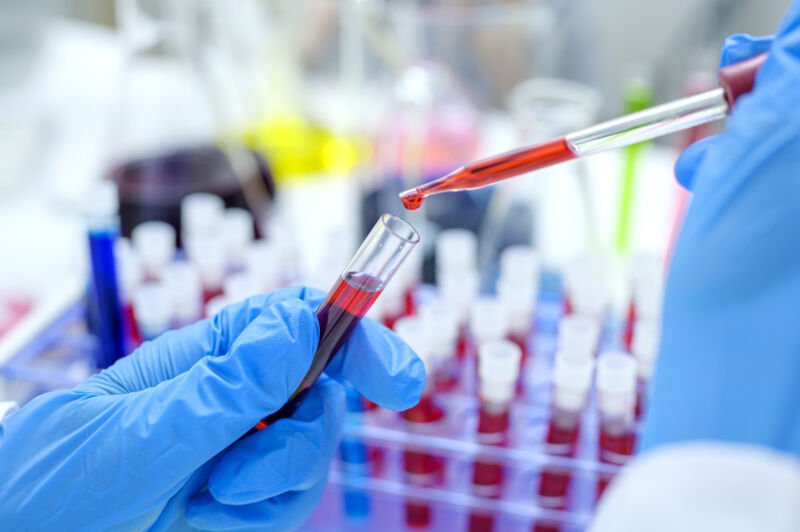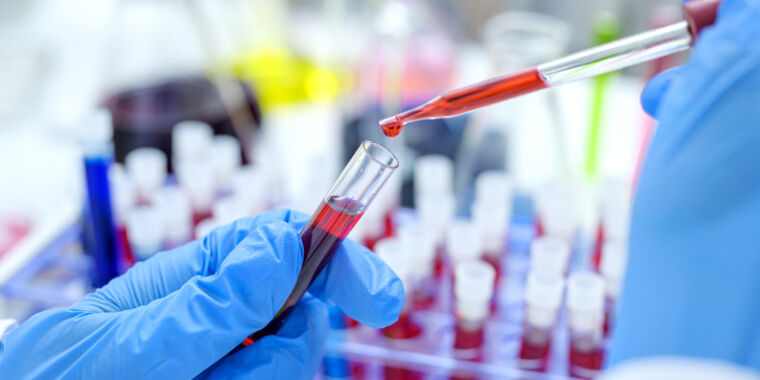
Nitat Termmee | Getty Images
Before his firm’s investment in Theranos, Brian Grossman acknowledged certain risks. The company may not have its devices approved by the FDA. It might fail to deploy its machines as quickly as hoped. It might not be able to rein-in manufacturing expenses for its proprietary devices. Those gave him pause before his firm invested $96 million, but these were questions of execution, the stuff experienced investors like Grossman know how to assess.
But with Theranos, there were questions beyond execution, questions that even savvy investors didn’t think to ask. “Did you think one of the risks here was that the founder and CEO was not being truthful to you?” assistant US attorney Robert Leach asked Grossman yesterday in the criminal trial of Elizabeth Holmes, Theranos’ founder.
“We did not think that was one of the risks,” Grossman replied.
Holmes, for example, never told Grossman that her company was using third-party devices to perform many of its blood tests. Nor did she tell him that, for around 40 percent of its samples, it was drawing patients’ blood from their veins, not using the finger-prick method that she flogged in the press.
Nor did Grossman suspect that Theranos’ financial projections were impossibly optimistic, even for a startup. In an email shown to jurors, Grossman’s colleagues say that Theranos’ forecasts are “a bit aggressive” but “with excellent execution are doable and can be exceeded.”
To estimate Theranos’ future revenues, Grossman and his colleagues developed a financial model in January 2014, based on data provided by the startup. By the end of the year, they expected Theranos to grow from $25 million to $249 million. By the end of 2015, they expected revenues to surge to $1.5 billion.
Have other companies grown that quickly, defense attorney Lance Wade asked Grossman. Yes, he replied. In his company’s financial analysis, they considered the examples of Facebook, Google, Tesla, Salesforce, and, more germanely, genetic sequencing company Illumina. On the stand, Grossman offered biotech firm Moderna as another example. Such companies tend to have “open-ended technology” and “have a big impact on society,” he said.
Later, Leach asked Grossman about Theranos’ financial projections. “Did you ever see a company miss its projections by over a billion dollars?”
“It’s unusual,” Grossman said.
“Was that a risk you thought you were taking?” Leach asked.
“Not in 2013 or 2014. No,” Grossman replied.
Failed validation
One warning sign that Grossman and his colleagues apparently didn’t weigh heavily was the fact that health insurer Blue Cross Blue Shield didn’t think Theranos’ technology worked. Grossman’s colleague, who had a contact there, wrote, “They said they evaluated service and came to the conclusion that it does not work. They have no contract with Theranos and they did extensive diligence on the machines and came to this conclusion.”
It’s not clear why this didn’t scare off Grossman’s firm, though it’s possible that Blue Cross had performed its tests years earlier and Grossman assumed the startup had made some progress in that time. Grossman also may have been considering Blue Cross’ conclusions alongside information from Channing Robertson, a Theranos board member and professor of chemical engineering at Stanford. One particular call with Robertson was “mind blowing” and gave him confidence in the investment, he said in an email shown to the court.
In all, Grossman was on the stand for around eight hours, with more than six of those under cross-examination by Holmes’ defense attorneys. Judge Edward Davila, who is known for his calm demeanor, flashed a bit of annoyance yesterday at how long the defense’s cross-examination was taking. “This could play havoc with our trial schedule,” Davila said. Holmes’ trial began nearly three months ago and has been in session for more than 30 days. The prosecution has yet to wrap, but they said they hope to this week—assuming Holmes’ attorneys don’t launch into more marathon cross-examinations.
False HIV test result
After the prosecution wrapped its brief redirect, Grossman stepped down and Theranos patient Erin Tompkins took the stand. Tompkins used Theranos’ blood testing services in 2015 at a Walgreens in Arizona. At the time, she didn’t have health insurance and was attracted to Theranos’ low cost. Her doctor had ordered an HIV test.
When the results came back, Tompkins was in shock. The test had detected the presence of an antibody related to HIV infection (three other HIV markers were negative). She told the court that she never had any symptoms nor had she been diagnosed with HIV in the past.
Tompkins said she called Theranos either that same day or the next to see if someone could explain the results to her. The call center representative who answered wasn’t helpful. “She said she was a customer service representative and couldn’t transfer me,” Tompkins recalled. “That was about it. I was very emotional at the time.”
Tompkins told the jury that she later took another HIV test elsewhere, and those results were negative. Two years after the Theranos test, she said, the startup sent her a refund check.
